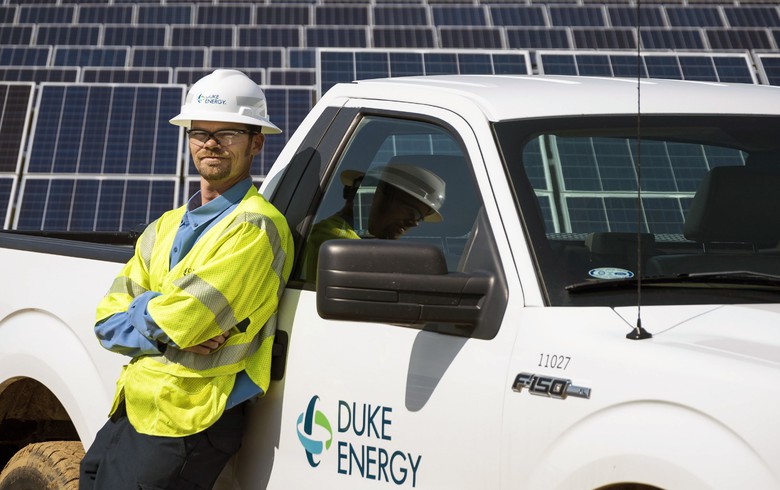
The lead rates and regulatory strategist analyst at Duke Energy Corporation stated that the company is currently studying Bitcoin mining. Lead analyst Justin Orkney said that a bitcoin demand response (DR) study was being worked on and the energy firm is partnered with bitcoin miners that are enrolled in Duke’s DR programs.
Researchers at Bitcoin Mining are the Second Largest U.S. Energy Corporation
The latest “Bitcoin, Energy and the Environment” podcast with Troy Cross, called “Duke Energy is studying bitcoin,” features Justin Orkney, the lead rates and regulatory strategy analyst at the energy corporation. In the episode, Orkney and the podcast host discuss “bitcoin’s utility” and “really interesting opportunities” that pertain to energy demand response programs.
DR allows energy consumers to shift or reduce loads, which in turn makes the grid more efficient. For instance, with bitcoin mining, by being able to “strategically locate miners on the system — There’s an opportunity to partner with these types of customers,” Orkney said. While a majority of the conversation details Orkney’s background in Solar and pilot studies on demand response, the analyst notes how bitcoin mining could be a powerful technology when it comes to DR components.

During the interview, Orkney stressed that some of Duke Energy’s (NYSE: DUK) customers were bitcoin miners. “We do have existing customers on our system,” Orkney explained to the show’s host. “They are voluntarily enrolled in our demand response programs. Those consist of basically agreeing to curtail usage at particular hours of the year when we call events.”
‘Bitcoin Mining Appears to Be That Really Powerful Demand Response Technology’
Most infrastructure, such as transmission lines and transformers in the U.S. are older than twenty years. The DR program can help grid customers (some of whom can be Bitcoin miners) to assist utilities in managing peak demand. To make older infrastructure more reliable, it is possible to manage insufficient transmission capacity more efficiently. Orkney said that it’s possible that bitcoin mining could be a technologically advanced DR method.
“Bitcoin mining appears to be that really powerful demand response technology where they can be humming at a 100% power factor, or using the same amount of electricity all day long which is called flatline, and then within a matter of minutes they can decrease their usage at kind of a pinpoint precision level and hold it for however long they want to and then bring it right back up,” Orkney said.
Bitcoin mining has received a lot of negative attention during the last year concerning the industry’s use of energy as the network reportedly consumes 91 terawatt-hours of electricity annually. However, a number of bitcoiners believe concerns about BTC’s energy consumption when it comes to mining are overblown. A study published recently shows that Bitcoin’s mining uses half the energy of traditional banking systems.
Daniel Batten (an ESG analyst) published an analysis that suggested that bitcoin mining could eliminate significant amounts of methane leaked. He also stressed that there is no better technology. Batten’s study shows that Bitcoin could strategically eliminate 0.15% of global CO2-eq emissions by 2045.
Duke, based in Charlotte, North Carolina distributes electricity to approximately 7.5 million customers. It also operates in six other states. Orkney states that Duke is America’s second-largest energy holding company.
Other than Duke Energy Corporation, Exxon Mobil (NYSE XOM), Equinor and La Geo have also reported that they have looked into Bitcoin mining options in the energy sector.
How do you feel about Duke Energy Corporation’s study of bitcoin mining? Comment below and let us know how you feel about the subject.
Images CreditsShutterstock. Pixabay. Wiki Commons
DisclaimerInformational: This article is not intended to be a solicitation or offer to sell or buy any product, service, or company. Bitcoin.com is not a provider of investment, tax, legal or accounting advice. This article does not contain any information, products, or advice that can be used to cause or alleged result in any kind of damage.